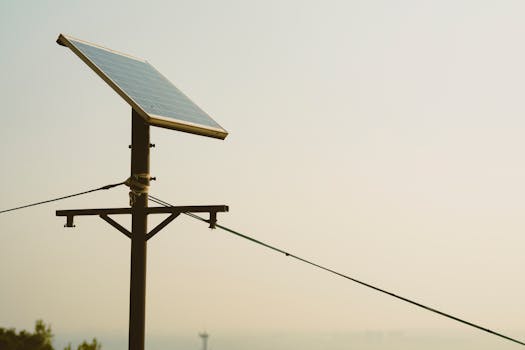
Sustainable Connectivity: How African Telcos are Leading Green Initiatives
Sustainable Connectivity is becoming a major focus for African telcos, as they seek to reduce their environmental impact while promoting digital inclusion and economic growth. African telcos are taking the lead in promoting sustainable connectivity through innovative green initiatives, reducing their carbon footprint and promoting environmental sustainability. In this article, we will explore the ways in which African telcos are leading the charge towards sustainable connectivity.
One of the key areas where African telcos are making a significant impact is in the use of renewable energy. Many telcos are investing in solar and wind power to reduce their reliance on fossil fuels and lower their carbon emissions. For example, MTN, one of the largest telcos in Africa, has set a target to power 100% of its operations using renewable energy by 2025. Similarly, Vodacom, another major telco, has launched a solar-powered network in South Africa, which is expected to reduce its carbon footprint by up to 70%.
Another area where African telcos are making a significant impact is in energy efficiency. Many telcos are implementing energy-efficient solutions, such as energy-efficient base stations and data centers, to reduce their energy consumption. For example, Airtel Africa has launched an energy-efficient network in Nigeria, which is expected to reduce its energy consumption by up to 50%. Similarly, Orange, a major telco in Africa, has implemented an energy-efficient data center in Senegal, which is expected to reduce its energy consumption by up to 30%.
Green Initiatives in African Telcos
African telcos are also launching a range of green initiatives to promote sustainable connectivity. For example, Safaricom, a leading telco in Kenya, has launched a green initiative to reduce its environmental impact. The initiative includes the use of renewable energy, energy-efficient solutions, and sustainable waste management practices. Similarly, Telkom, a major telco in South Africa, has launched a green initiative to reduce its carbon footprint and promote environmental sustainability.
In addition to these initiatives, African telcos are also partnering with international organizations to promote sustainable connectivity. For example, the GSMA, a global mobile industry association, has partnered with African telcos to launch a range of initiatives to promote sustainable connectivity. These initiatives include the use of renewable energy, energy-efficient solutions, and sustainable waste management practices.
Challenges and Opportunities
While African telcos are making significant progress in promoting sustainable connectivity, there are still several challenges that need to be addressed. One of the major challenges is the lack of infrastructure in many African countries, which can make it difficult to implement sustainable connectivity solutions. Another challenge is the high cost of renewable energy, which can make it difficult for telcos to invest in sustainable energy solutions.
Despite these challenges, there are also several opportunities for African telcos to promote sustainable connectivity. For example, the use of renewable energy and energy-efficient solutions can help telcos to reduce their energy consumption and lower their carbon emissions. Additionally, the implementation of sustainable waste management practices can help telcos to reduce their environmental impact and promote environmental sustainability.
Conclusion
In conclusion, African telcos are taking the lead in promoting sustainable connectivity through innovative green initiatives. The use of renewable energy, energy-efficient solutions, and sustainable waste management practices are just a few examples of the ways in which African telcos are reducing their environmental impact and promoting environmental sustainability. While there are still several challenges that need to be addressed, there are also several opportunities for African telcos to promote sustainable connectivity and contribute to a more sustainable future.







